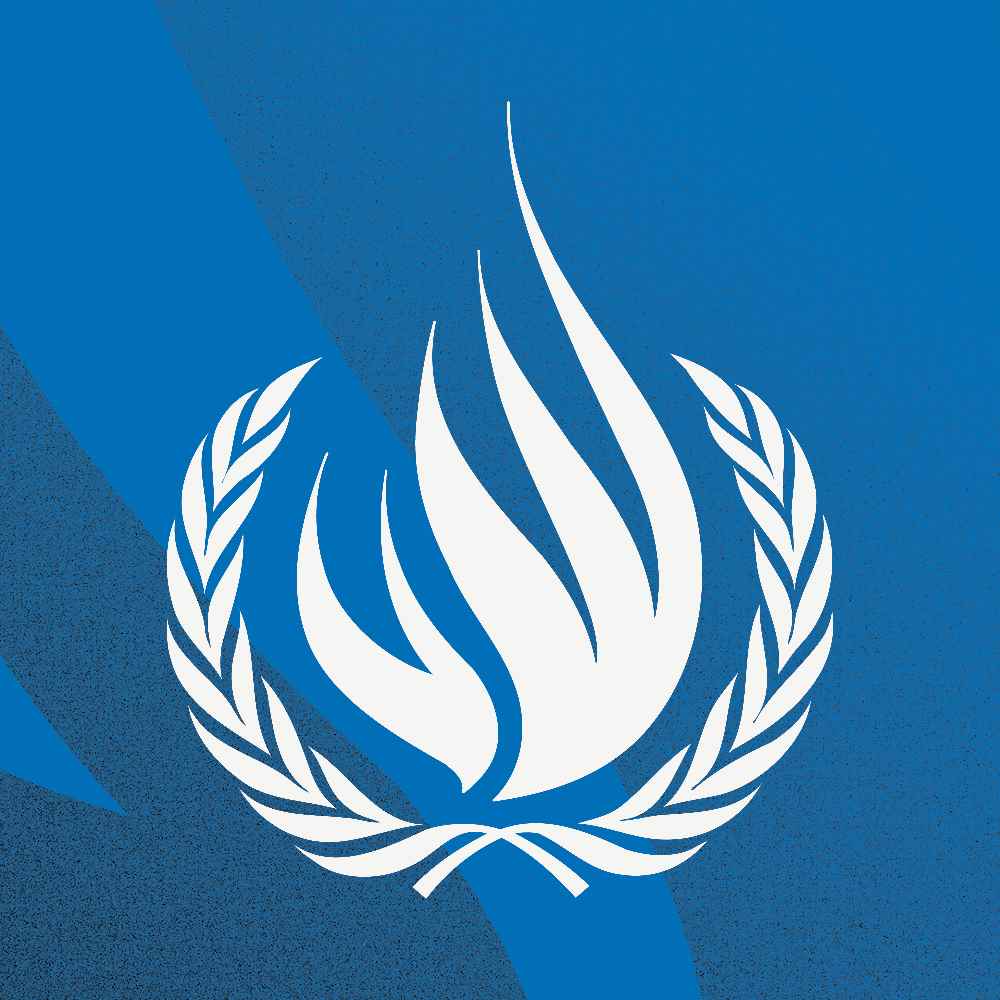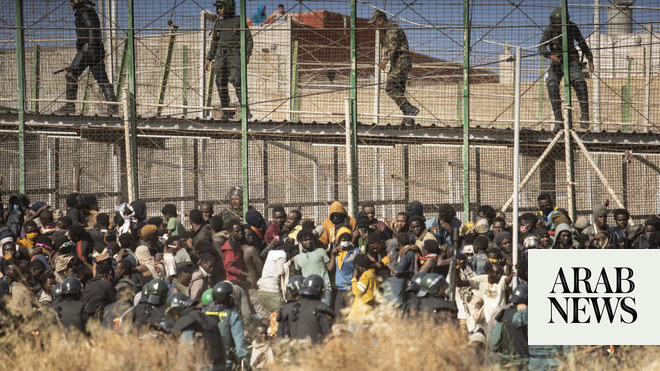
Tensions escalated quickly on the inaugural anniversary of the deadly Beirut port explosion as authorities shot off a water cannon and deployed tear gas at protestors
Protesters attempted to storm the parliament building in Beirut as Macron warns about sanctions against corrupted officials within Lebanon
BEIRUT: On a national day of mourning, thousands of Lebanese citizens joined victims’ families and protesters on Wednesday to commemorate the inaugural anniversary of the deadly Beirut port blast.
Tensions escalated quickly as authorities shot off a water cannon and deployed tear gas at protestors who threw stones toward security forces near parliament. Some protestors even attempted to storm the parliament building in the heart of Beirut from the various entrances.
According to the Lebanese Red Cross, more than 50 people were injured in clashes between protesters and the authorities. The army said it arrested a citizen in the Zouk area, who was in possession of a weapon, ammunition, gas masks, and metal chains. They made six more arrests at the Awali checkpoint in Sidon as weapons, ammunition, and military equipment were confiscated.
The protesters called for justice and a swift investigation into who should be held responsible for the blast while a senior Christian cleric demanded to know why explosive chemicals had been stored in the capital.
On Aug. 4, 2020, a massive explosion — the country’s worst peacetime disaster — destroyed a large section of the capital, killed at least 215 people, and injured more than 6,500. The blast destroyed entire residential neighborhoods and left at least 300,000 people homeless.
The forensic investigator into the crime has not yet issued an indictment to explain what happened but more details about the explosion continue to emerge.
The 2,750 tons of ammonium nitrate, which had been stored at the port for several years without proper safety precautions, arrived on a Russian-leased cargo ship that made an unscheduled stop in Beirut in 2013.
An FBI report seen by Reuters last week estimated around 552 tons of ammonium nitrate exploded in the blast, far less than the amount that had originally arrived.
The protesters on Wednesday demanded that the immunities for the defendants, which include acting ministers, representatives, and security officials be lifted so a proper investigation can be conducted.
“Justice is not just the demand of the families of the victims but of all Lebanese,” Maronite Patriarch Bechara Boutros Al-Rai, Lebanon’s most senior Christian cleric, said during Wednesday’s memorial service.
“All immunities should be lifted. We want to know who brought in the explosives, who allowed for their unloading and storage, who removed quantities of it, and where it was sent.”
French President Emmanuel Macron accused the entire Lebanese political class of having “contributed to the exacerbation of the crisis when it placed its interests above the interests of the Lebanese people.”
Macron warned that individuals involved in corruption in Lebanon “should not doubt our determination to apply sanctions against them.”
The Lebanese parliament is yet to decide on Judge Tarek Bitar’s request to lift the immunity of three MPs accused in the Beirut port explosion: former Finance Minister Ali Hassan Khalil, former Public Works Minister Ghazi Zeaiter, and Former Interior Minister Nohad Machnouk.
Caretaker Interior Minister Mohamed Fahmy refused to lift the immunity of the defendant Abbas Ibrahim, director-general of the Lebanese General Security, last week.
Judge Bitar had previously charged the three MPs, and former minister Youssef Fenianos, with “negligence” and “possible intent to murder” because they were aware of ammonium nitrate “and did not take measures to spare the country the risks of an explosion.”
Security services took strict measures on the roads leading to the heart of Beirut on Wednesday. They allowed only pedestrians to enter the area and prevented motorbikes and cars during the protests.
On Tuesday, civic groups indicated that attempts would be made during the commemorations to storm parliament, homes of ministers, MPs, and public institutions. They said sit-ins would be held until the parliament approved the lifting of immunity.
On the day of national mourning, flags were lowered over the presidential palace and public institutions as all facilities in the capital were closed.
Thousands of citizens gathered near the port in the afternoon waving Lebanese flags. Protesters came from Baalbek, Tripoli, Tyre, and Matn to express their anger at the authorities’ attempts to put obstacles in the way of knowing the truth. Men and women were dressed in black while children and the elderly carried flags and chanted for justice.
The families of the victims carried pictures of their deceased loved ones as they recalled moments of sorrow and tears. They demanded to know why their relatives died.
“What is required is to prosecute all those whom the judiciary accuses of negligence and knowledge of the existence of these tons of deadly materials but did nothing,” Hussein Nassar, a war veteran, told Arab News.
“This includes everyone from the top of the pyramid to the lowest ranking official. The revolutionaries are patient, and we will bring down this parliament in the upcoming elections.”
Nadim Ezz El-Din said he came from Deir Qanoun En Nahr in the south to demand that the ruling authority appears before the judiciary: “I do not want to insult people, but criminals should be behind bars.”
A woman who went by “Lara” went to the Beirut Port to show solidarity with the victims’ families and traveled with her sisters from the Dbayeh area.
“We still believe in the homeland and the revolution, but we hate the parties that took power and brought us to where we are today,” she said. “We will stand in the face of this authority no matter how hard they try to suppress us.”
Elham Awad came with her friends from the Saadiyat region in the south. She said the firing of rockets from the south toward Israel on Wednesday was “an attempt to divert the attention away from the perpetrators of the Aug. 4 massacre.”
A virtual conference to support Lebanon on Wednesday concluded with participants pledging a combined $370 million within the year to support a country ravaged by a failing government, economic collapse, and widespread living crises.











